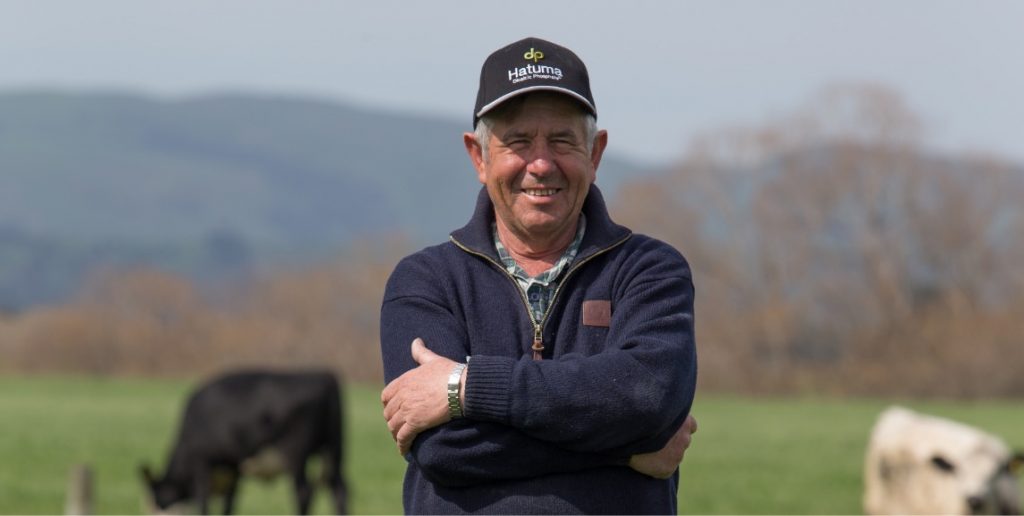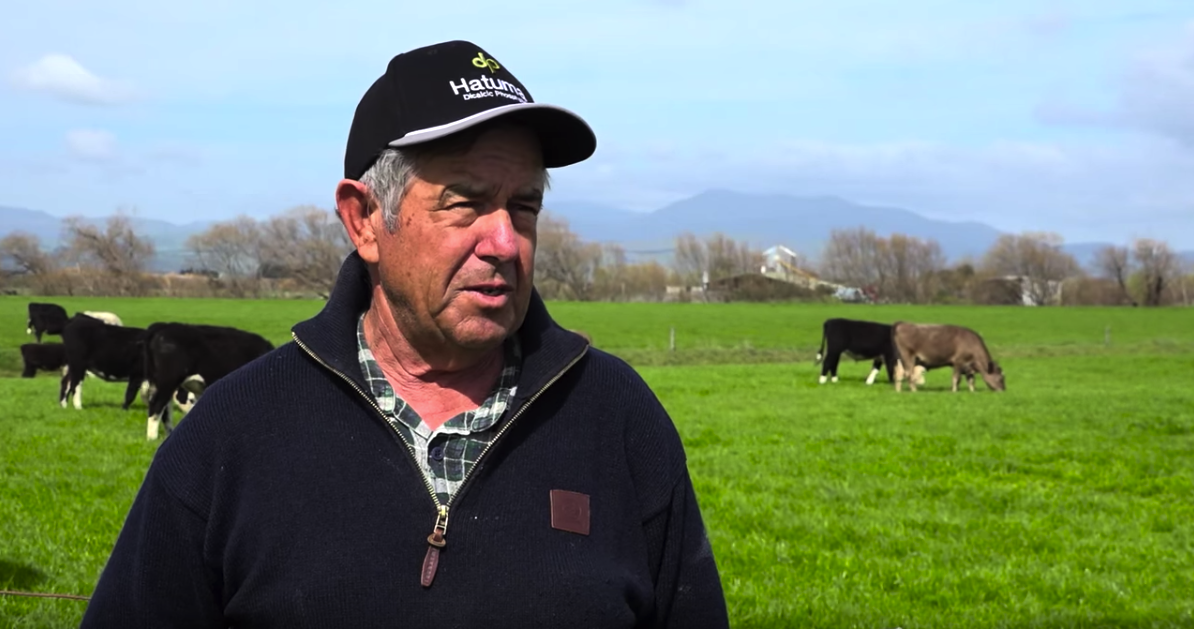Jim owns a farm near Martinborough and also is a working Director in an agricultural contracting business, Colton Brothers, which specialises in making baleage and silage as well as ploughing, drilling, sowing, harvesting and cartage of crops around the region.
He farms 150 Hectares of flat land in Martinborough, which he runs intensively with sheep and beef on one third of the property and crops on the other two thirds.
Jim started using Hatuma Dicalcic Phosphate® ten years ago and as a result has enjoyed increased production and profitability.
Better Pasture Growth
“Within a season I saw huge improvements with the clover responding immediately. The clover regrowth has been phenomenal and there are a lot more earthworms.”
“We have an intensive operation where we do a lot of rotational grazing. Pasture quality is our main focus but we have quantity as well, which is also important because we make hay and baleage to get us through the dry summers
and winter.”
“After applying Hatuma Dicalcic Phosphate we found the stock grazed the paddocks more evenly because the pasture is more palatable now.”
Healthy Soil and Excellent Crop Yields
Jim uses Hatuma Dicalcic Phosphate® as a base fertiliser for all his crops and puts a large amount on his maize and barley crops.
“I am growing high yielding crops and getting excellent results with Hatuma Dicalcic Phosphate.”
The grass is re-sown regularly and Jim applies Hatuma Dicalcic Phosphate® in both autumn and spring and says he finds it very cost effective for his cropping operation.
“After the summer crops we plant Italian grasses in autumn, which carry us over the winter for grazing. Hatuma Dicalcic Phosphate gives the grass a good boost and helps see us through.”
“Under my cropping programme the paddocks only stay in grass for a maximum of two to three seasons so it’s really important that we keep the soil healthy.”
Cleaner and Healthier Stock
Jim says stock health improved after applying Hatuma Dicalcic Phosphate®.
He fattens cattle and takes them through to market. He also breeds early lambs, which are not drenched, but sold off their mothers, at 18kgs, straight to the works.
The cattle are brought in at four days old, hand reared, and sold to the market as two year old heifers and steers.
“We rarely drench our stock. It’s minimal drenching on our farm with the cattle receiving two pour ons in their entire life.”
The stock are not only healthier but are also cleaner.
“We aren’t getting the dirty sheep like we used to and we are dagging less before shearing.”
Cost Effective
Jim applies 60 tonne of Hatuma Dicalcic Phosphate® each year and says his annual fertiliser bill has decreased.
“Applying lime and phosphate in one application makes sense and is more cost and time effective.”
Sustainable Farming
The fact that Hatuma Dicalcic Phosphate® is non water soluble and is less likely to leach into waterways was a huge draw card for Jim.
“Sustainability will be an important focus for farmers over the next ten years. By using Hatuma Dicalcic Phosphate we are future proofing the pasture and protecting the waterways. We are looking after the soil and also the quality of stock coming off the pasture.”


